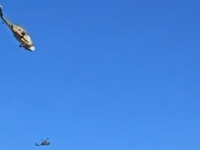Senior officials from Iran, six world powers and the European Union have started the third day of their latest round of talks in Austria's Vienna with a view to finalizing a draft deal on Iran’s nuclear program.
The talks by deputy foreign ministers started Thursday at 9.00 am local time and ended around noon, but experts from all sides pushed ahead with their talks.
The high-profile negotiations brought together Iranian deputy foreign ministers, Abbas Araqchi and Majid Takht-e Ravanchi, with EU deputy foreign policy chief Helga Schmidt and Wendy Sherman, the US under-secretary of state for political affairs.
Iran, the EU and the P5+1 countries - the US, Britain, France, Germany, China and Russia - are working on the draft of a final nuclear agreement which is expected by the end of June. The three sides reached a mutual understanding in the Swiss city of Lausanne on April 2, which is seen as the principle framework in the current negotiations.
The ongoing discussions are believed to be an effort to sort out the details, especially those related to technical and legal aspects of Iran’s nuclear program.
“The deputies sit down and make general decisions on which the experts will continue consultations on the very minute details,” said Homa Lezgee, Press TV's correspondent to the talks.
“When they reach some kind of a conclusion or a stumbling block, the deputies again get involved,” Lezgee said, adding that efforts for finalizing the details and reaching some sort of conclusion are being continued “very ferociously.”
No uncoordinated inspection guaranteed
Araqchi also began talks with Yukiya Amano, the director general of the International Atomic Energy Agency (IAEA), later in the day.
In a recent interview, Amano claimed that Iran’s possible implementation of the Additional Protocol to nuclear Non-Proliferation Treaty (NPT), for snap inspection of nuclear facilities, would require Tehran to open its military sites for inspection.
But Araqchi said the Additional Protocol would not authorize the IAEA to inspect Iran’s military sites, noting that the protocol and the relevant safeguards provisions could be negotiated. He also said that Iran will not be deprived of the right to block these sorts of inspections only because it accepts to sign the protocol.
“The issue of inspections will depend on decisions being made on how the inspections will take place and based on what justifications,” Lezgee quoted Araqchi as saying.









